Storytelling has the power to bridge gaps, connect us, and instill identity. So, when people ask me “What is it?!” about trail running, I always tell the story that trail running completely changed my mental landscape. Trail running was the springboard that completely changed the way I thought about myself–what I felt I was worth, what I felt I was capable of, and seeing what abilities and capacities I had to pursue things in life I previously believed myself incapable of pursuing. It was a place where I saw myself constantly redefining my limits, and that transferred over to other areas of my life. My running girlfriends agree, saying, “Trail running is something hard I choose to do, so when life throws something hard at me I didn’t choose, I know I can do it”, or, “If I can run a 50- or 100-mile race, I know I can change a tire, go back to school, or do anything else in life I choose to do.” There’s an overall theme that trail running transforms a woman’s sense of confidence, or self-efficacy, and makes a woman feel empowered. When I run with guy friends and we talk about this, they all say “Well, I feel empowered, too!” And I don’t doubt that, but I think it’s different for women and men.
This led me to ask: What makes this difference? Do women and men define empowerment differently? Do women and men build self-efficacy and empowerment in different ways? Do women and men apply self-efficacy and empowerment differently in their lives or in different life areas? One of my own mental landscapes that trail running changed for me was higher education. I never thought I was good enough or smart enough for higher education, and my Chem 101 professor confirmed this when he told me I had “global issues”. I promptly dropped out of college the day he said that to me, and it took a long 10 years to finish my B.S. Years and thousands of trail miles later, I am halfway through a PhD program. For my dissertation, I want to gather stories–I will explore how women and men trail runners respectively use trail running to build their self-efficacy and empowerment, and how they transfer experiential knowledge gained from trail running to other life areas.
Current literature confirms women who engage in physical activities, including running, increase their self-efficacy and feel empowered; and that this is a phenomenon very specific to women. However, there are no studies that explore how this phenomenon happens for men, and no comparative studies exploring the gendered process that women and men trail runners respectively use to build self-efficacy and empowerment and then the transfer process to other life areas. I used a qualitative research class last year as an opportunity to pilot my survey and qualitative interview guide, get feedback, and make adjustments before my dissertation.
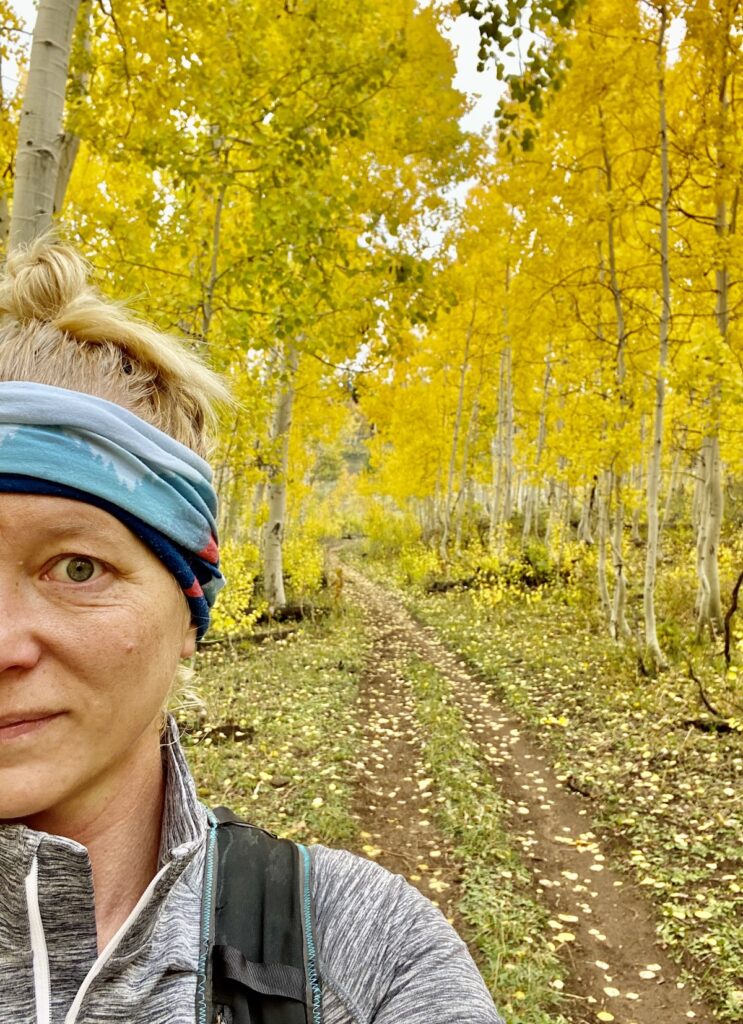
One of my short answer questions from my survey was “From your experience as a trail runner, how do you define empowerment, and can you describe a time you experienced it while trail running?” Women and men defined empowerment using much of the same language and experiences: Believing in yourself; Confidence and ability to push beyond your limits; Knowing you can do hard things; Resilience when things get tough; and shared experiences ranging from completing their first ultramarathon; pushing themselves physically during an event; to when they summit a peak. But how women and men described building self-efficacy and empowerment and subsequent transfer to their lives is what differed.
When I conducted the interviews, I asked the participants to email me 3 of their favorite photos from trail running. I started the interview with a get-to-know-you icebreaker and asked that they self-select 1 photo of the 3 they sent me and describe the meaning and significance it held to them. Both women and men sent me selfies at the finish line of a race, mountain views, and landscapes, but the self-selected photos differed vastly. In the women’s self-selected photos, the landscape is prominent, and if they are in the photo, they are far away on the trail with their back to the camera, almost like they are a part of the landscape. They described the effort of a trail run or climbing a peak as worth it because it resulted in a deep connection to their mountain surroundings. Another said, “When you get to the ridgeline you can just kind of float and fly…it’s been where I’ve found my solace and passion my whole life”; and “On a run, in the moment, you just let go and feel the energy.”
In the men’s self-selected photos, they are all standing prominently in the forefront of the photo facing the camera; they are on mountaintops, almost dominating the landscape, and they described the significance of their photos by saying, “You know, I don’t get recognition as an engineer–but I get recognition as an ultrarunner. I picked this photo because it’s my best race photo”; “I know this trail well enough it’s about finding where I can push the corners of performance”; “I love when I’m on top of the mountain and it looks dangerous, but I’m in total control”.
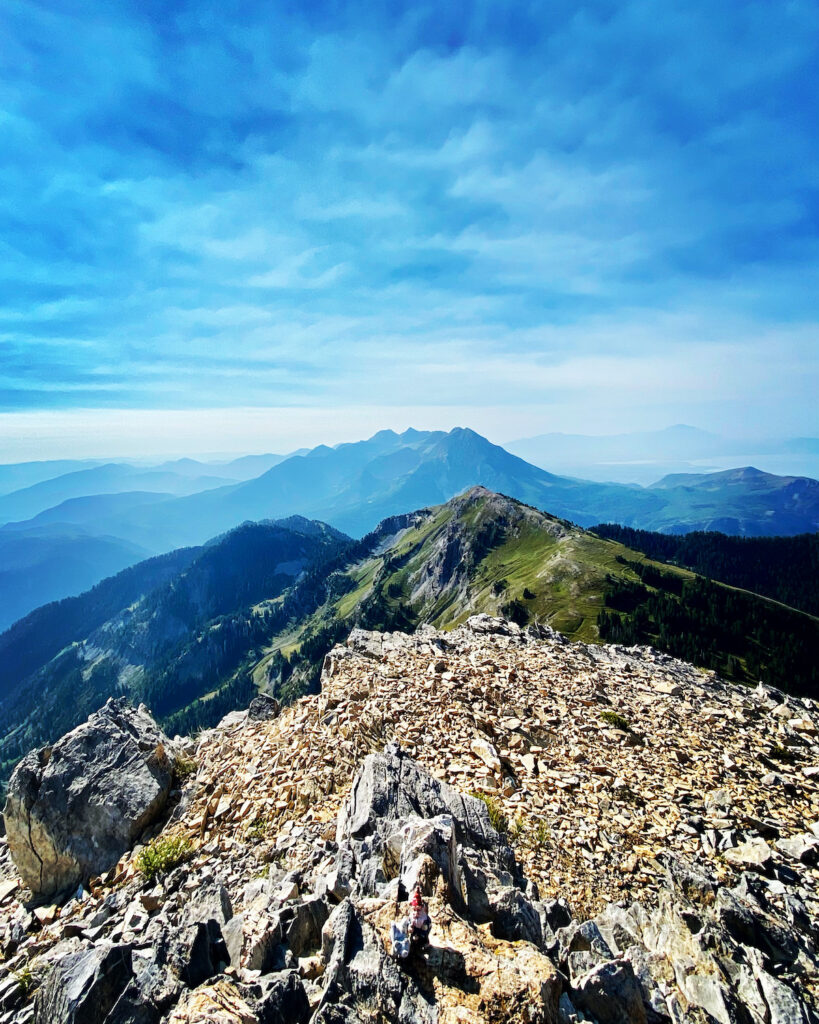
The findings from this pilot run cannot be generalized but demonstrate the gendered process of building self-efficacy and empowerment differs in that women use internal methods while men use external methods. From the photo stories and analysis of the interview transcripts, findings showed that trail running enables women to build self-efficacy through making deep emotional connections with both the trail running community and the landscape where they run, having a place where they can let go, and they described finding their identity through this emotional connection. Women use trail running to build empowerment by being a space where they redefine their limits and a place where they experience application and reflection of self in different contexts. Women are adaptable–they transfer lessons in multiple ways and in multiple life areas, showing they can adapt to situations and contexts in a world where they may not feel like they have the loudest voice. In essence, women build self-efficacy and empowerment from the inside out and then apply them in many different life areas.
Trail running enables men to build self-efficacy through focusing on pushing the corners of their performance, and they described it as a place where they receive external recognition. Men use trail running to build empowerment through their actions and behaviors–using their skills and abilities to be an example for others (their families, for example), and this is where they describe using their actions and behaviors to find a sense of identity. Men are focused–they transfer lessons from the trails in focused ways close to their minds and hearts. Men build self-efficacy and empowerment from the outside in and then apply them in a focused ways in life areas that are close and meaningful to them.
Identifying the gendered process of building self-efficacy and empowerment and subsequent transfer can add to someone’s story. Trail running stories help us understand our identity, identify where and why our strength comes from, and who and how we influence those around us. What trail stories do you have to share? What mental landscape has trail running helped you change?



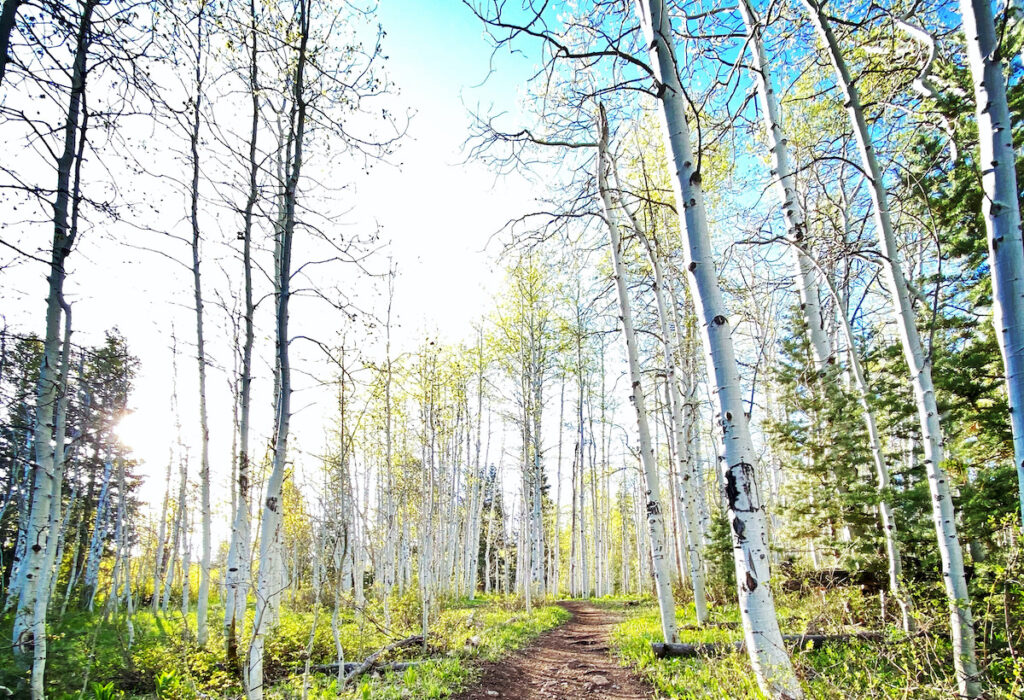
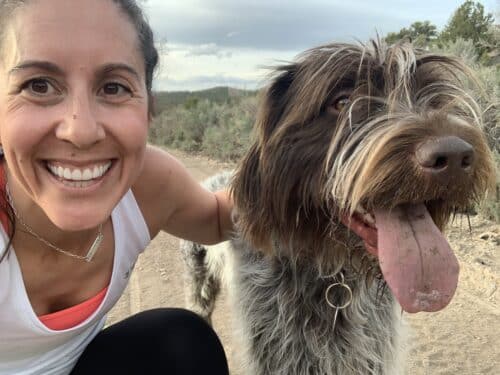
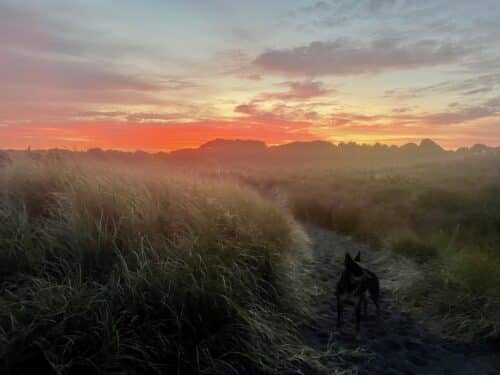

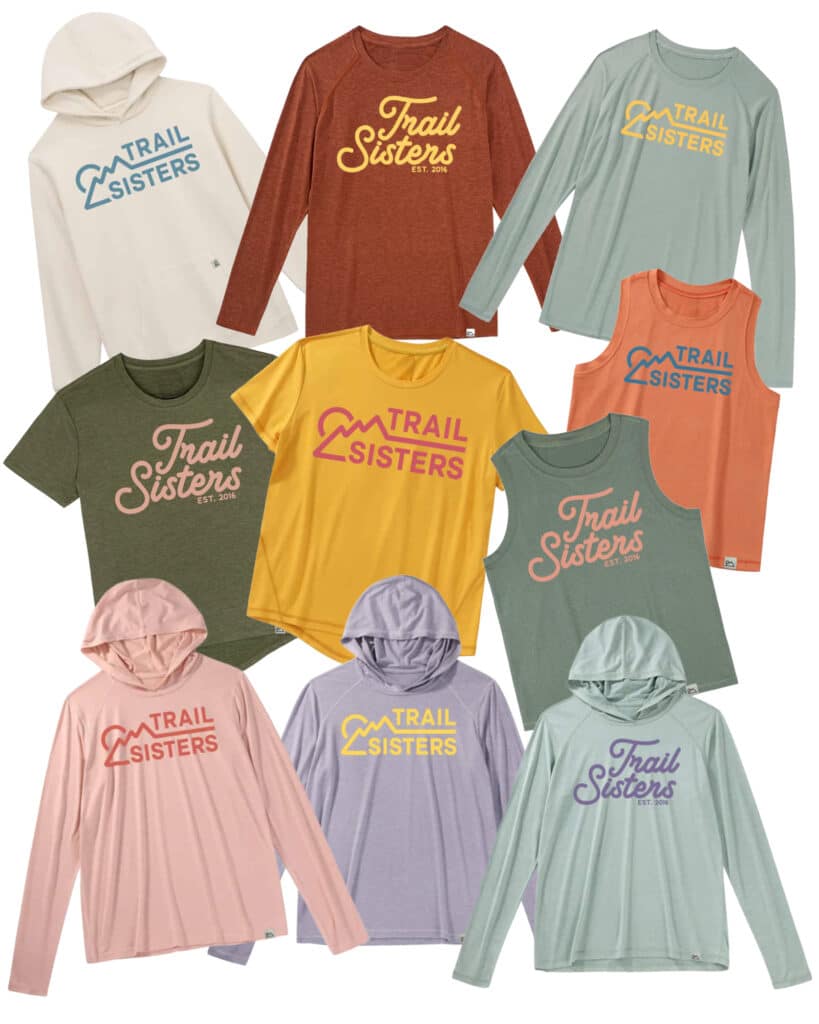

2 Responses
This is fascinating. It does help articulate things I can relate to about my own trail running experiences. On a side note, recently I started noticing some commonalities in some of the Facebook profile pics of friends my own age (late 40s). Several of the guys choose pics of just themselves, in action–water skiing, speaking at a meeting, mountain biking, etc. Many of the girls’ pics are more relational: pics of themselves with family or friends. Neither is better or worse. It was just interesting. Thanks for sharing and giving food for thought. Best wishes with your PhD!
I always just figured it was because men assume they can do/be anything until it’s proven that they CAN’T, but women by default assume they can’t until they prove to themselves that they CAN.
Most of this probably does come from our upbringing and being told verbally or otherwise that we have limitations.
For example, when you wrote “If I can run a 50- or 100-mile race, I know I can change a tire” that is communicating to me that it’s something you think most women can’t or shouldn’t be able to do as readily as men when in reality there is no physical reason why men should be able to change a tyre and women not – it’s super easy unless it’s a truck or heavy machine tyre but unfortunately most girls and women are never taught how.
Also, if you take note of how many times women apologise vs. how many times men do – we tend to apologise for taking up space, for speaking, for putting ourselves to the forefront of a photo, for simply existing (which I believe is also a learned behaviour).